Africa
Brice Oligui Nguema wins Gabon Presidential election with 90.35% of the Vote
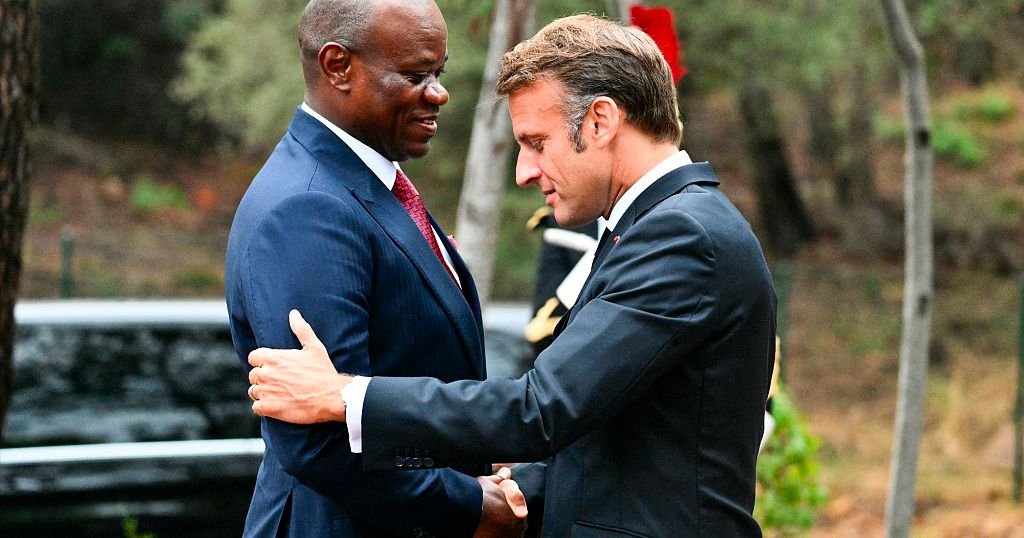
Brice Oligui Nguema, the leader of Gabon’s transitional government and the military figure who led the 2023 coup, has claimed a decisive victory in the country’s presidential election, securing 90.35% of the vote, according to provisional results released by the Ministry of the Interior on Sunday.
The military leader, who ousted long-time ruler Ali Bongo in August 2023, cast his vote on April 12, 2025, at the Centre Urban Pilot School in Libreville, where the election took place.
In the race, Oligui Nguema’s closest competitor, Alain-Claude Bilie Bie Nze, garnered just 3.02% of the vote, while the remaining six candidates failed to break the 1% mark. The election, which saw a 70.4% voter turnout, marks a significant step in Gabon’s return to constitutional rule after the military-led transition.
After his coup against President Bongo, Oligui Nguema had initially pledged to hand power back to civilian authorities. However, he officially entered the race last month, presenting himself as a “civilian” after being granted leave from his military duties. With this overwhelming victory, Oligui Nguema is set to serve a seven-year term, which is renewable once.
It’s Gabon’s first election since the 2023 military coup ended a political dynasty that lasted over 50 years.
Some 920,000 voters, including over 28,000 overseas, were registered to vote in the election, seen as crucial for the country where a third of the population of 2.3 million people lives in poverty despite its vast oil wealth.
At least 94.8% of the polling stations observed operated under satisfactory conditions, while the transparency of operations was deemed satisfactory in 98.6% of cases, the Gabonese Civil Society Organizations Observation Mission said late Saturday.
The interim president had his representatives present in 69.6% of the polling stations observed while Bilie-By-Nze’s representation stood at just 8.2%, the observers said.
Oligui Nguema, 50, the former head of the republican guard, toppled President Ali Bongo Ondimba nearly two years ago.
Africa
Ramaphosa suspends police minister amid corruption allegations
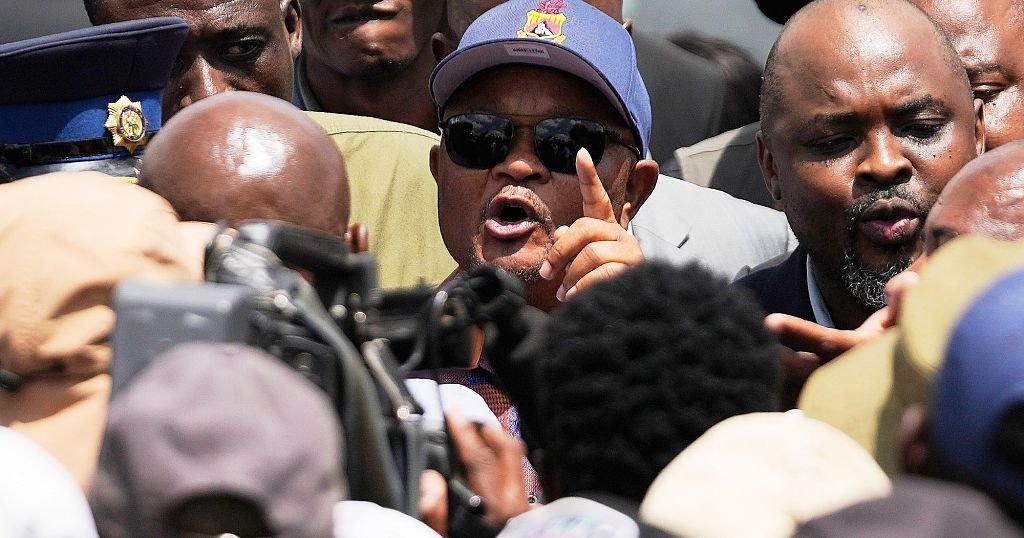
South African President Cyril Ramaphosa has suspended Police Minister Senzo Mchunu following serious allegations made by General Nhlanhla Mkhwanazi, a top police official. Mkhwanazi accused Mchunu and Deputy Police Commissioner Shadrack Sibiya of interfering in sensitive investigations and colluding with criminal syndicates.
The suspension comes amid growing concern over alleged political interference within key law enforcement agencies. President Ramaphosa announced the decision publicly, stating, “In order for the Commission to execute its functions effectively, I have decided to put the Minister of Police Mr Senzo Mchunu on a leave of absence with immediate effect. The Minister has undertaken to give his full cooperation to the Commission to enable it to work properly.”
Ramaphosa has appointed Professor Firoz Cachalia as acting Minister of Police. Meanwhile, Mkhwanazi further alleged that Mchunu and Sibiya disbanded a critical crime-fighting unit that was investigating a string of politically motivated killings. These killings were reportedly linked to organized criminal networks.
The President also outlined the scope of the inquiry. “The Commission will investigate the role of current or former senior officials in certain institutions who may have aided or abetted the alleged criminal activity; or failed to act on credible intelligence or internal warnings; or benefited financially or politically from a syndicate’s operations,” Ramaphosa said.
Opposition parties have criticized the President for not taking stronger action. They argue that placing Mchunu on leave falls short of accountability and have called for his immediate dismissal instead.
Africa
Cameroon’s Paul Biya, 92, announces bid for another term
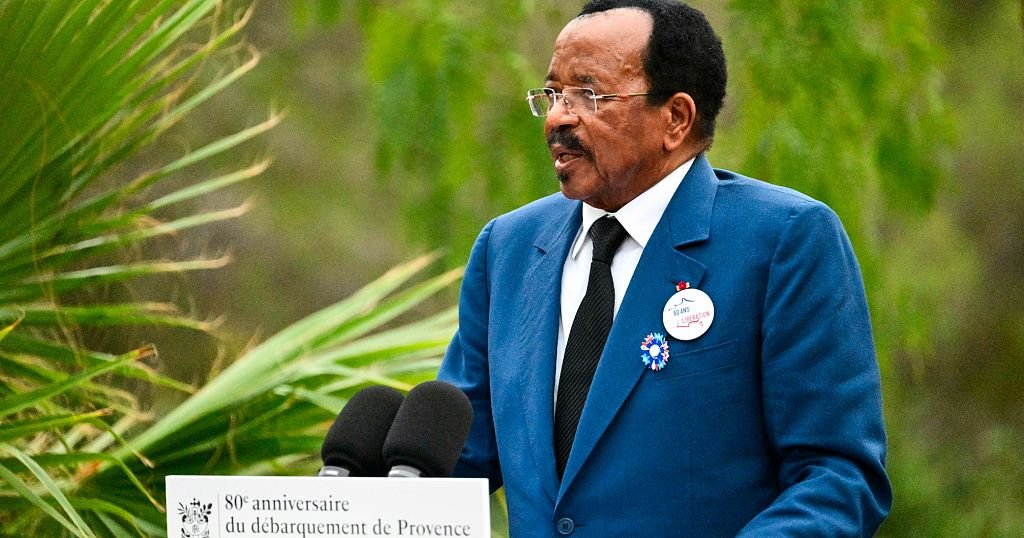
Cameroon’s longtime leader, President Paul Biya, has officially announced he will run for another term in office, ending months of speculation over his political future. The 92-year-old made the announcement on social media, stating his continued determination to serve and promising that “the best is yet to come.”
Biya has been at the helm of Cameroon for over 40 years, making him the second longest-serving president in Africa. His decision to seek re-election has sparked criticism from opposition figures and human rights advocates. One prominent activist described the announcement as a clear sign of Cameroon’s stalled political transition, adding that the country is in urgent need of democratic change and accountable leadership.
In 2018, Biya secured a controversial victory with over 70 percent of the vote. That election was marked by allegations of fraud, low voter turnout, and violence.
The country’s conflict-ridden English-speaking regions have been deeply affected by a separatist crisis that has forced thousands of students out of school and led to deadly clashes between security forces and armed groups.
Throughout his presidency, Biya has faced accusations of corruption and failure to address national grievances. His frequent absences from the country for medical treatment have also raised concerns about his health and ability to govern effectively.
As the country heads toward another election cycle, Biya’s bid for another term promises to be a polarizing chapter in Cameroon’s already complex political landscape.
Africa
Gabon launches electoral process for September 27 local and legislative elections
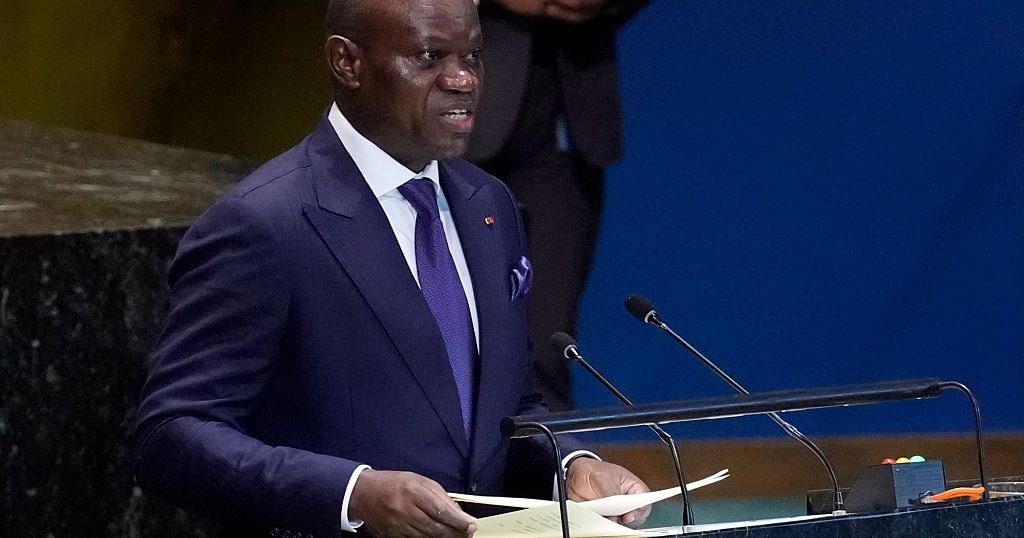
The electoral process for Gabon’s local and legislative elections is officially underway.
The timetable for the September 27 vote has been announced and members of the national election commission have been sworn in by the Constitutional Court.
The revision of electoral rolls across the country begins on July 14 and continues until August 12. This will ensure new voters are added and deceased or ineligible voters removed from the rolls. It will also register any changes of voting centre and update personal data.
People aged 18 and over with a Personal Identification Number (PIN) are automatically registered and need only choose their polling center.
Local electoral commissions will be set up by July 26 and deployed across the country and abroad.
Nominations for the legislative and local elections are open from July 27 to August 7.
Fifth Republic
The Ministry of the Interior and national election commission reaffirmed their commitment to ensuring “credible, transparent and peaceful” elections, and called on citizens to play an active part in building the Fifth Republic.
Last week, two years after seizing power in a coup, President Brice Oligui Nguema unveiled a new political party, the Democratic Union of Builders, or UDB. Oligui secured nearly 95 percent of the vote in April’s presidential election.
The launch of the UDB appears to signal Oligui’s intent to transition from military leader to long-term political figure. While he initially presented himself as a reformer leading a transitional government, the creation of a political party gives structure to his leadership and a platform for future governance.
-
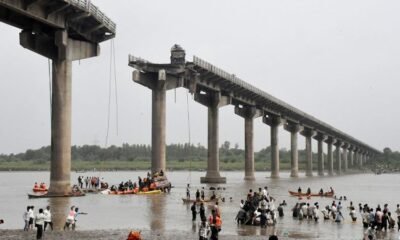
 Asia5 days ago
Asia5 days agoGujarat state: Bridge collapse kills 9 in India
-

 Europe5 days ago
Europe5 days agoTrump promised 200 deals by now. He’s gotten 3, and 1 more is getting very close
-

 Sports3 days ago
Sports3 days agoBill Ackman: Swift backlash after billionaire’s pro debut
-
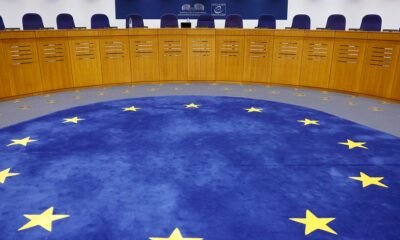
 Africa5 days ago
Africa5 days agoTop European court delivers series of damning rulings against Russia
-

 Europe2 days ago
Europe2 days agoAs South Korea becomes a key arms supplier to US allies, its best customer is on the edge of a warzone
-
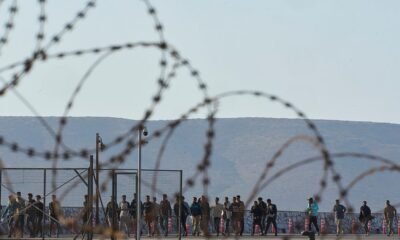
 Africa5 days ago
Africa5 days agoGreece blocks asylum claims after surge in migrant arrivals
-

 Lifestyle4 days ago
Lifestyle4 days agoHealthy workday snacks include a smart mix of energy-boosters
-

 Lifestyle3 days ago
Lifestyle3 days agoOne Tech Tip: All the ways to unsubscribe, after ‘click-to-cancel’ was blocked




